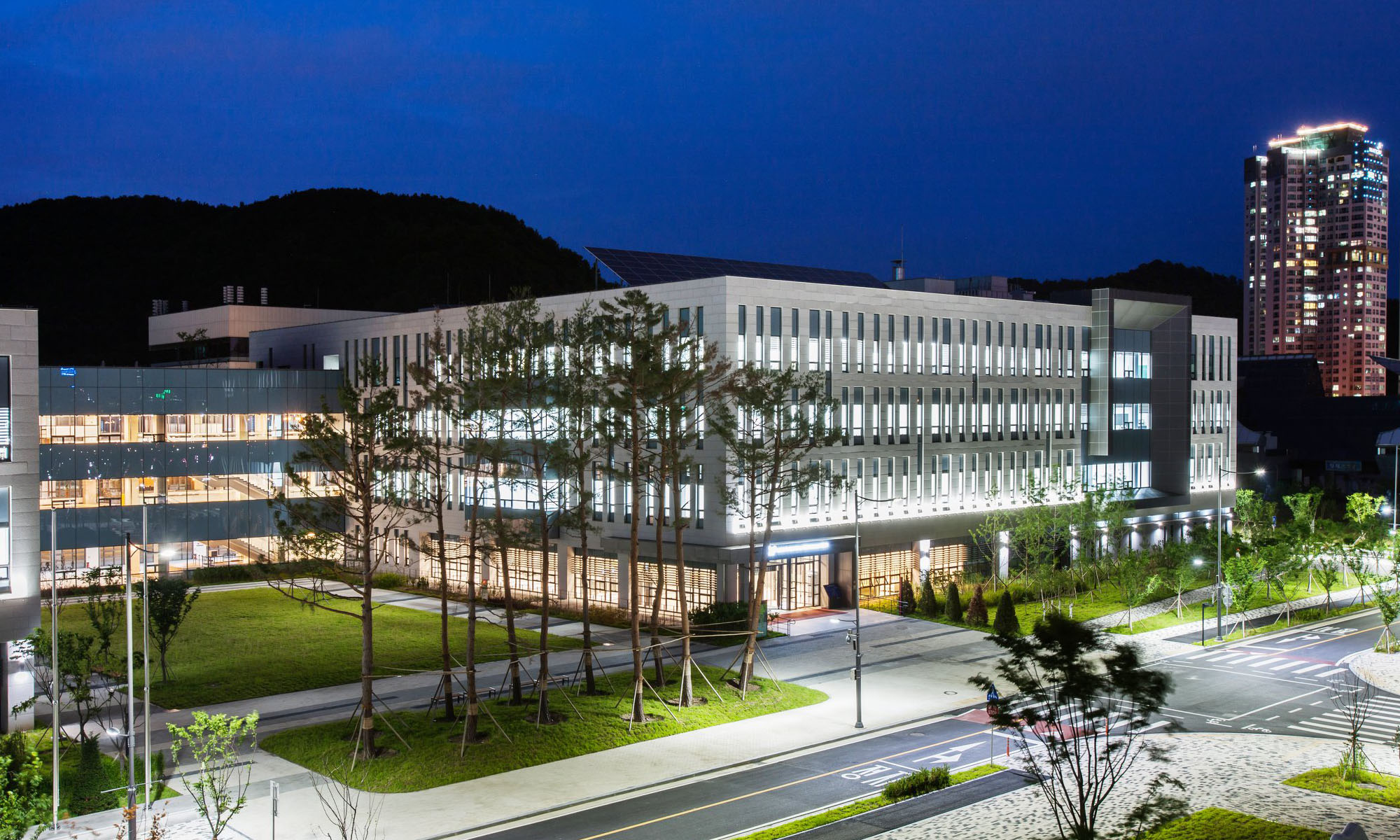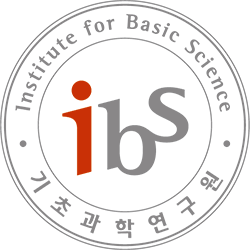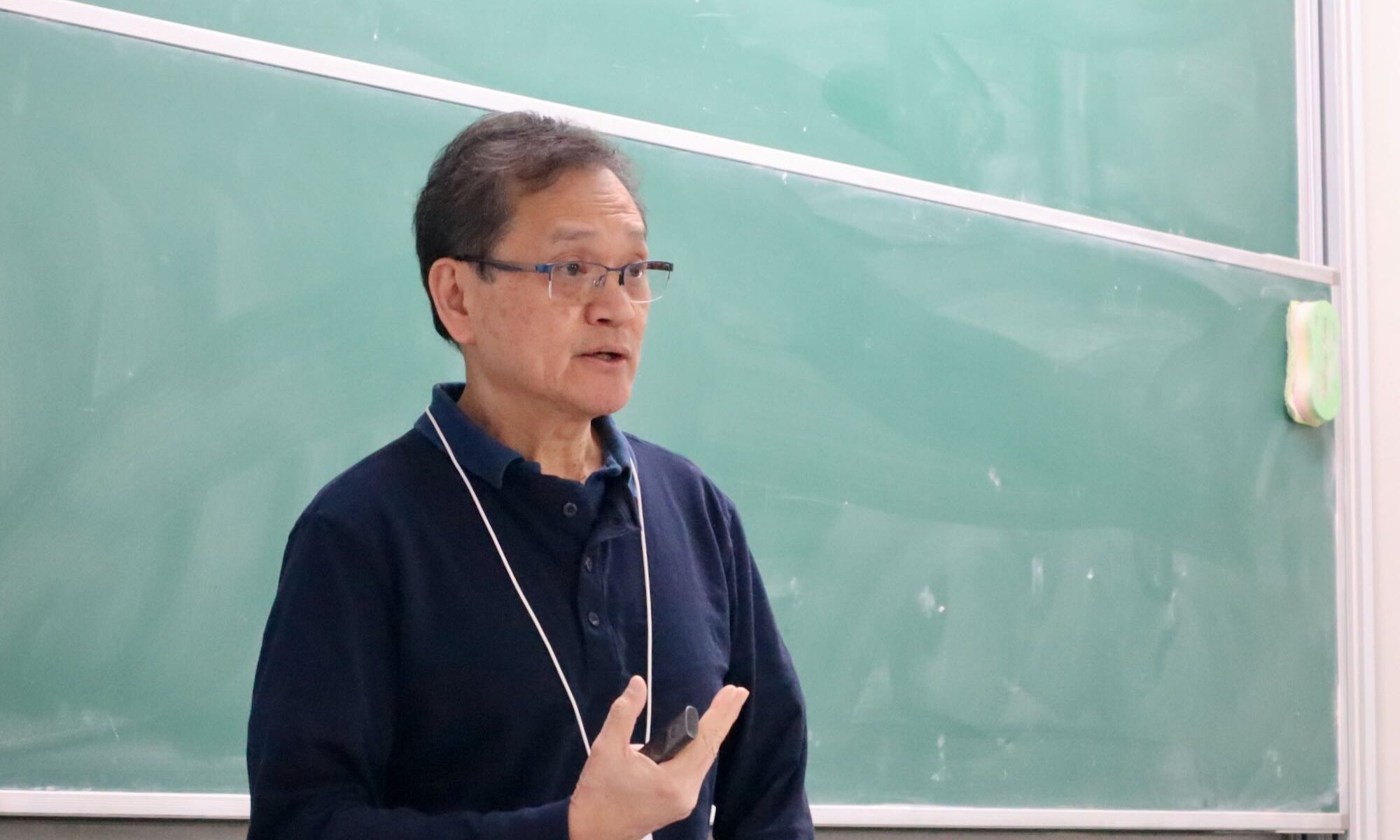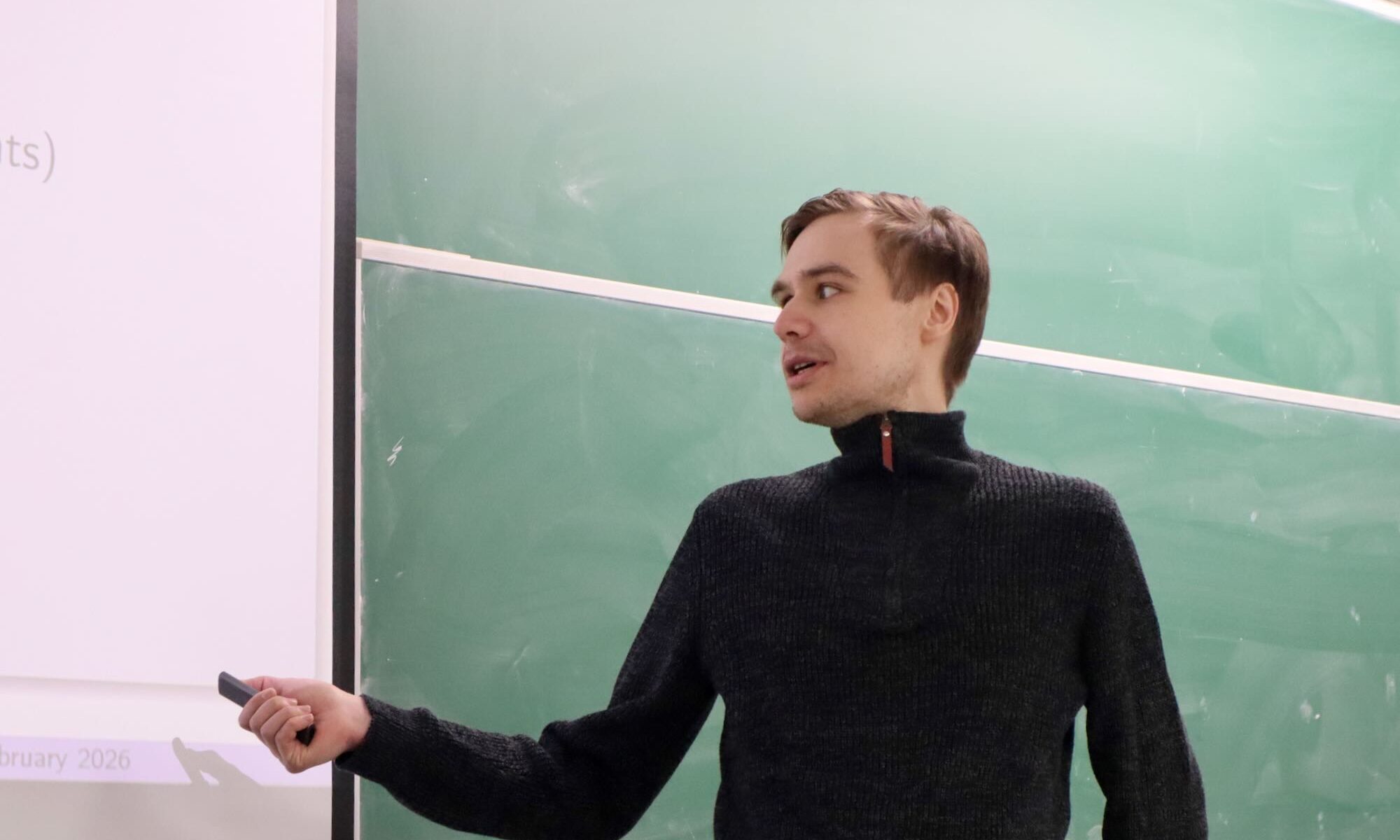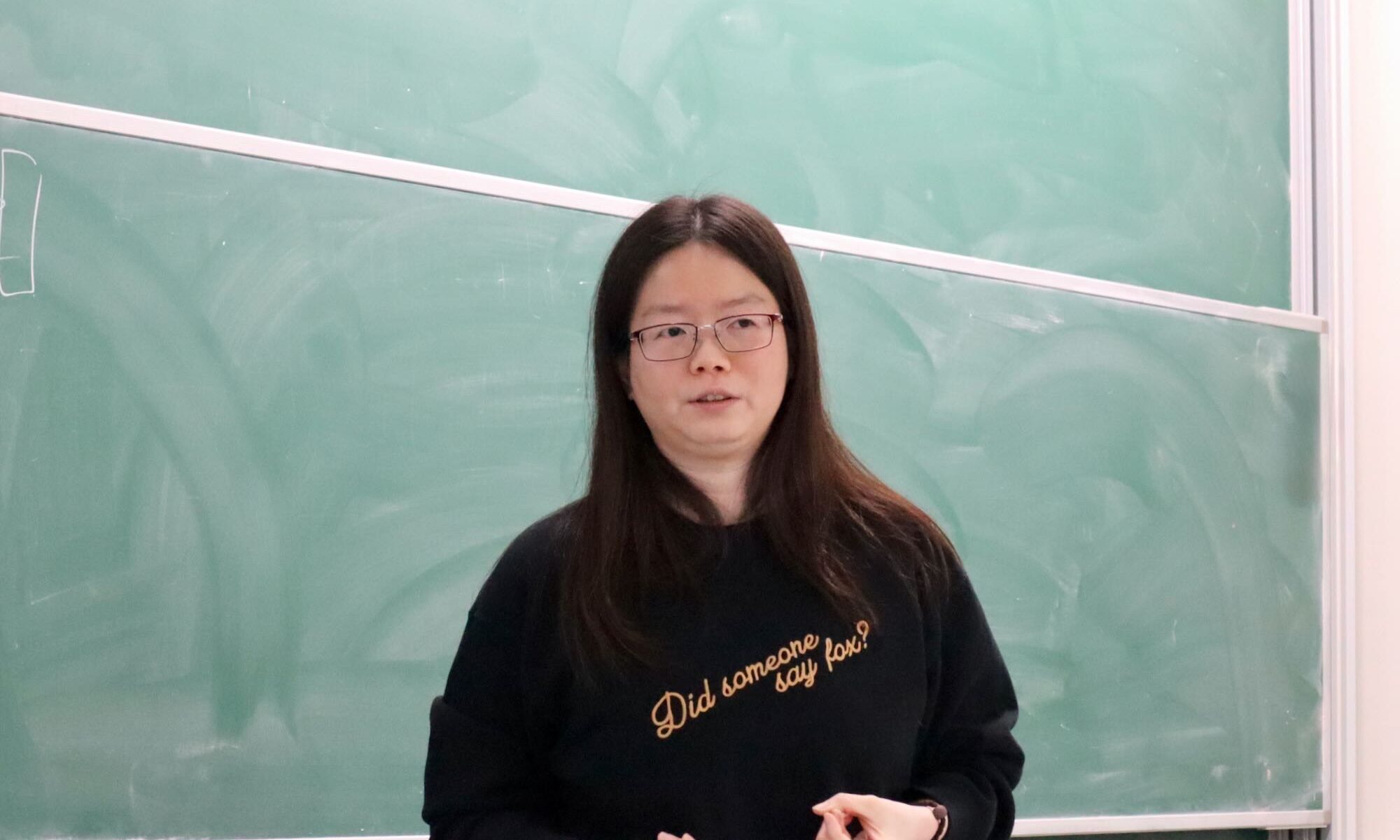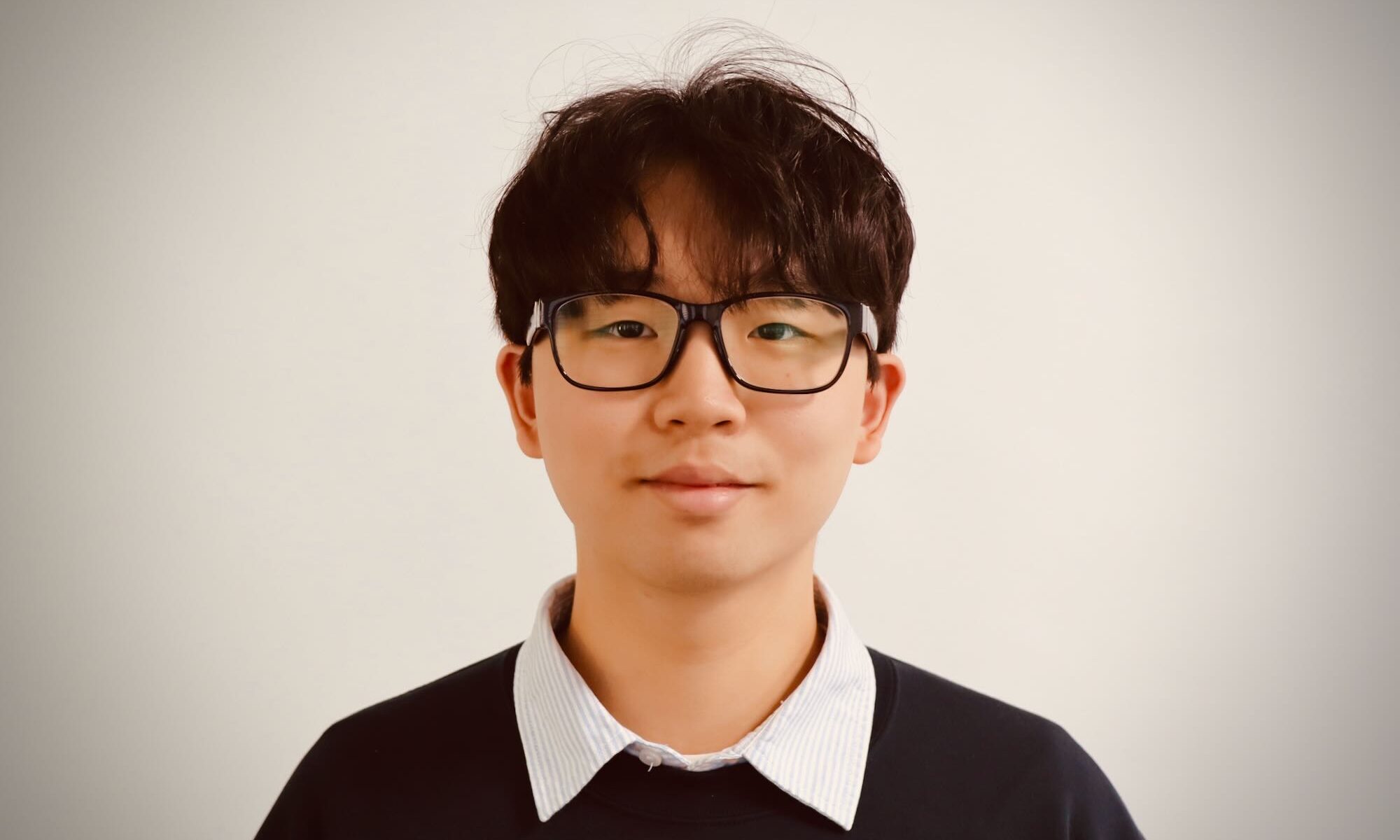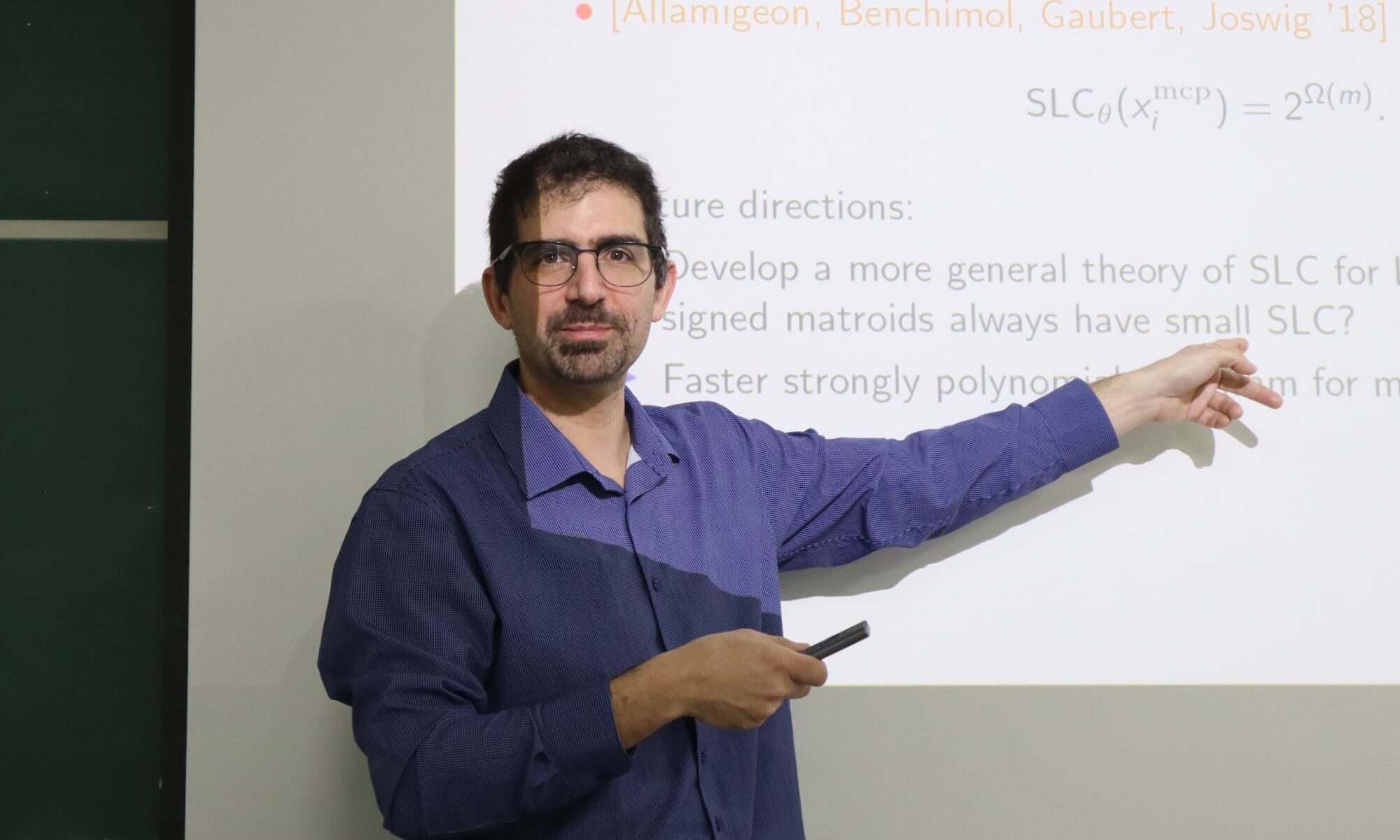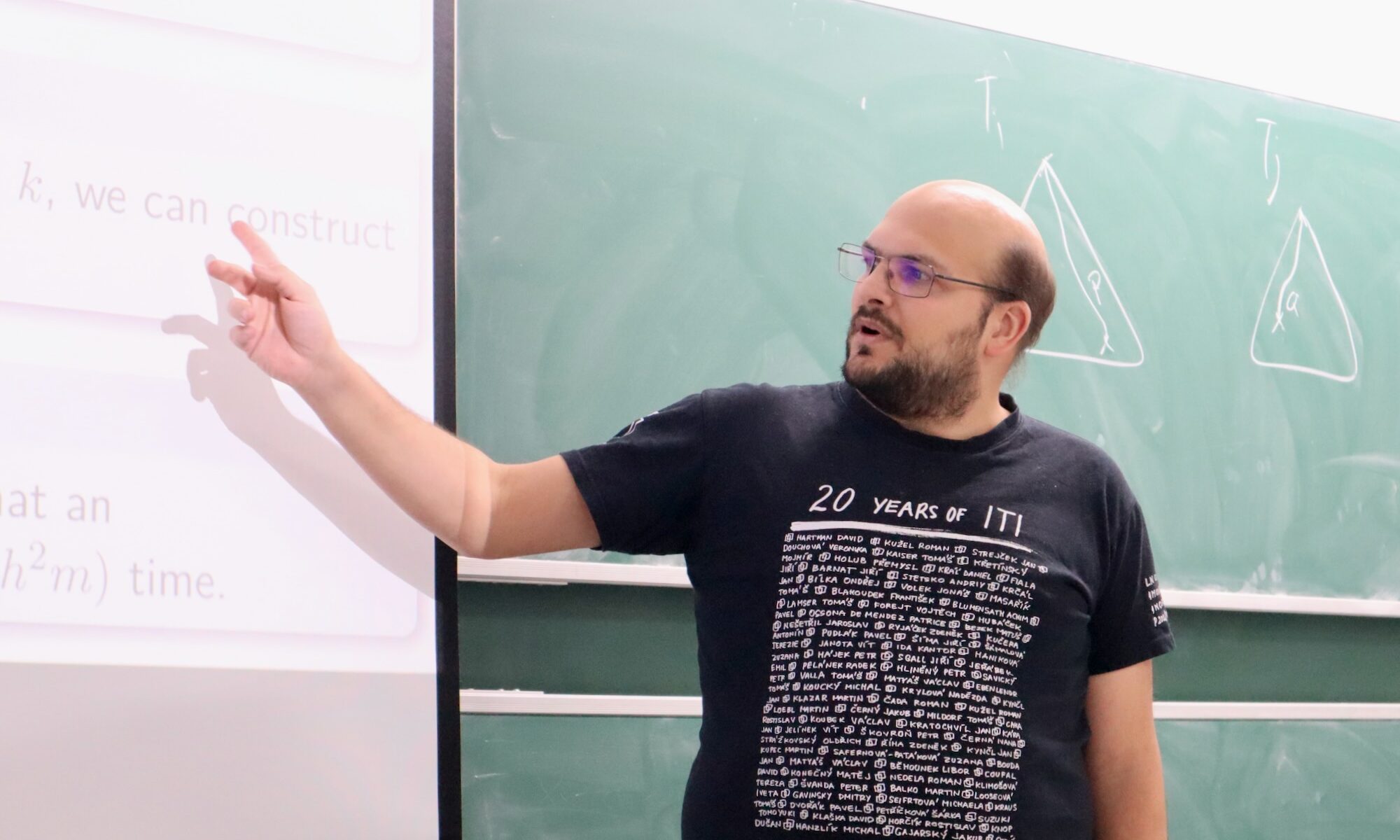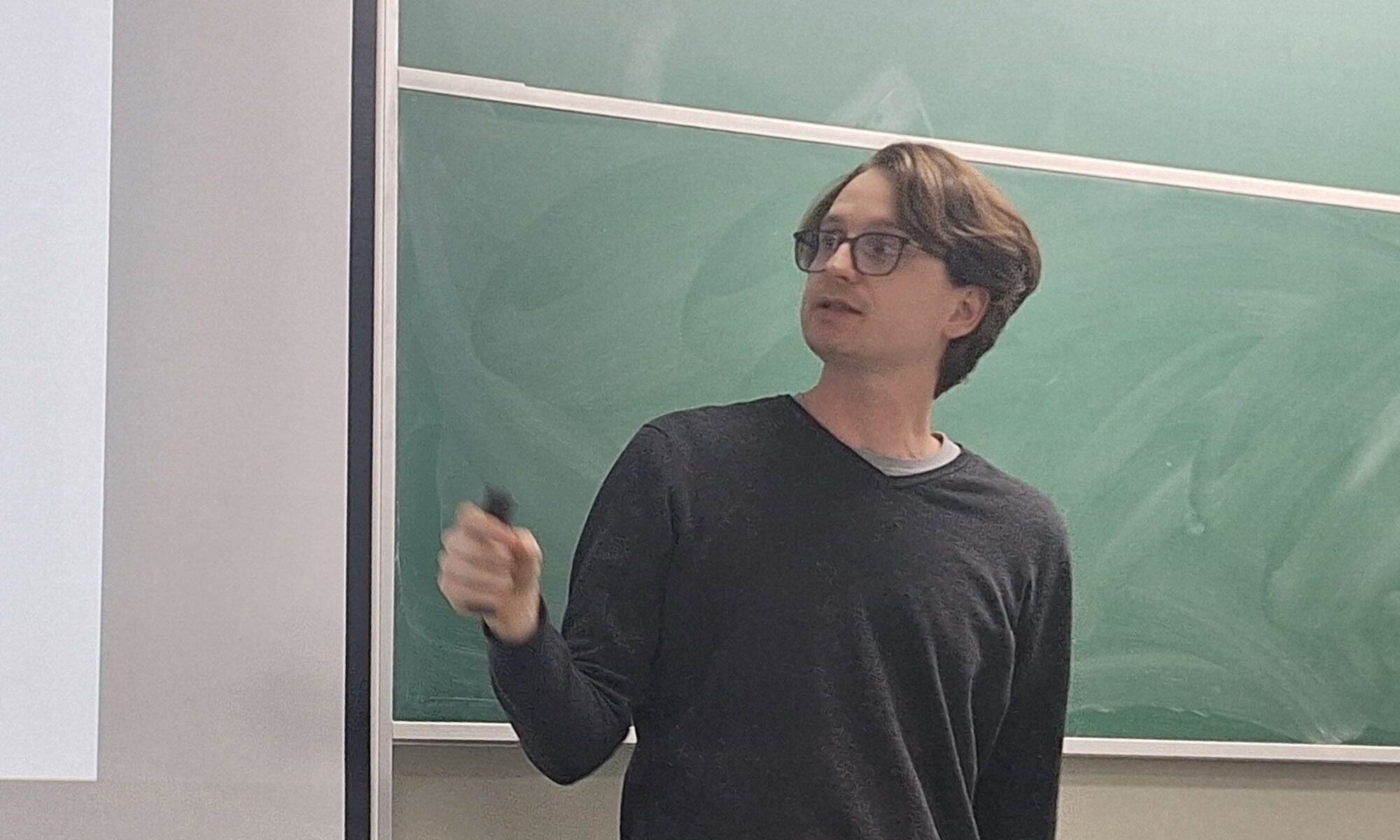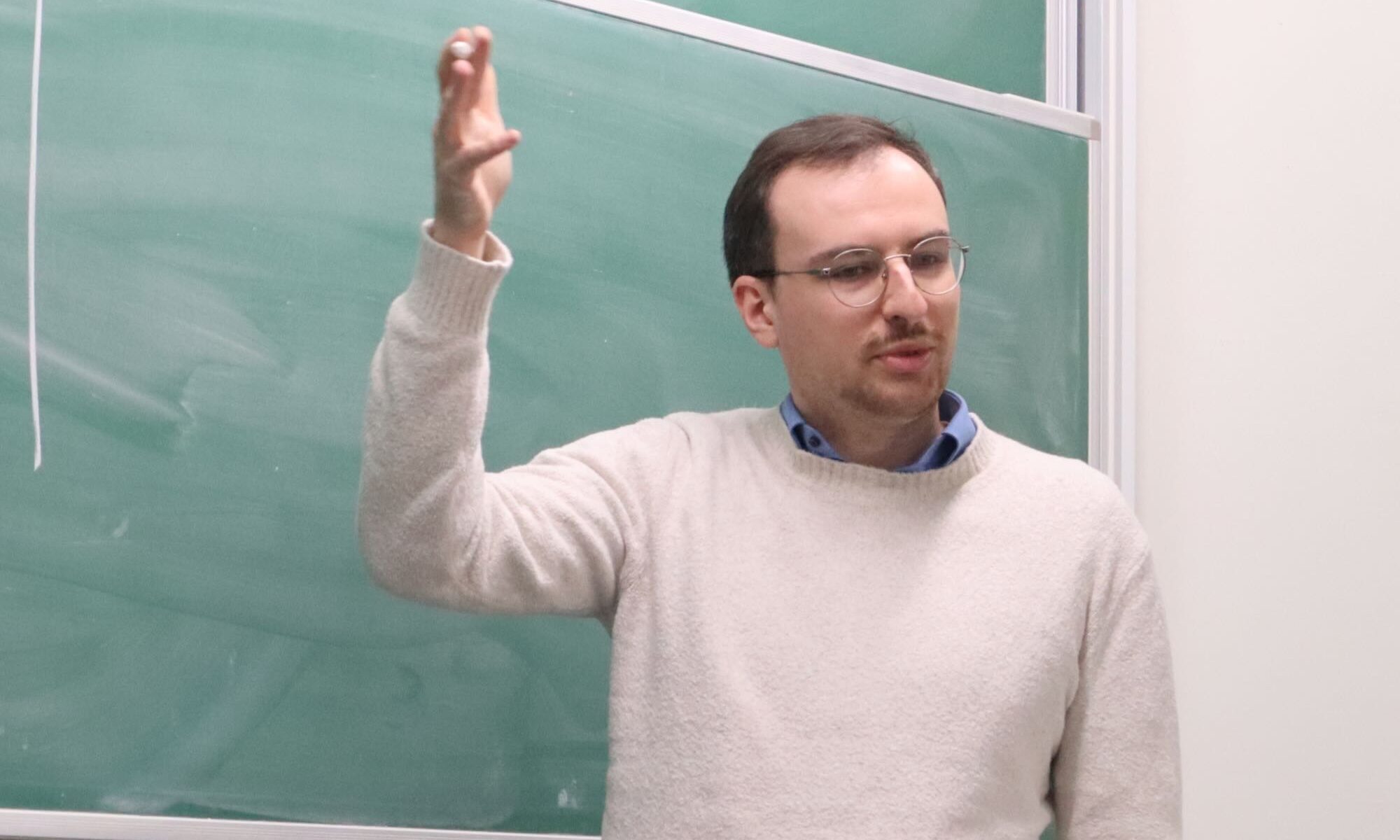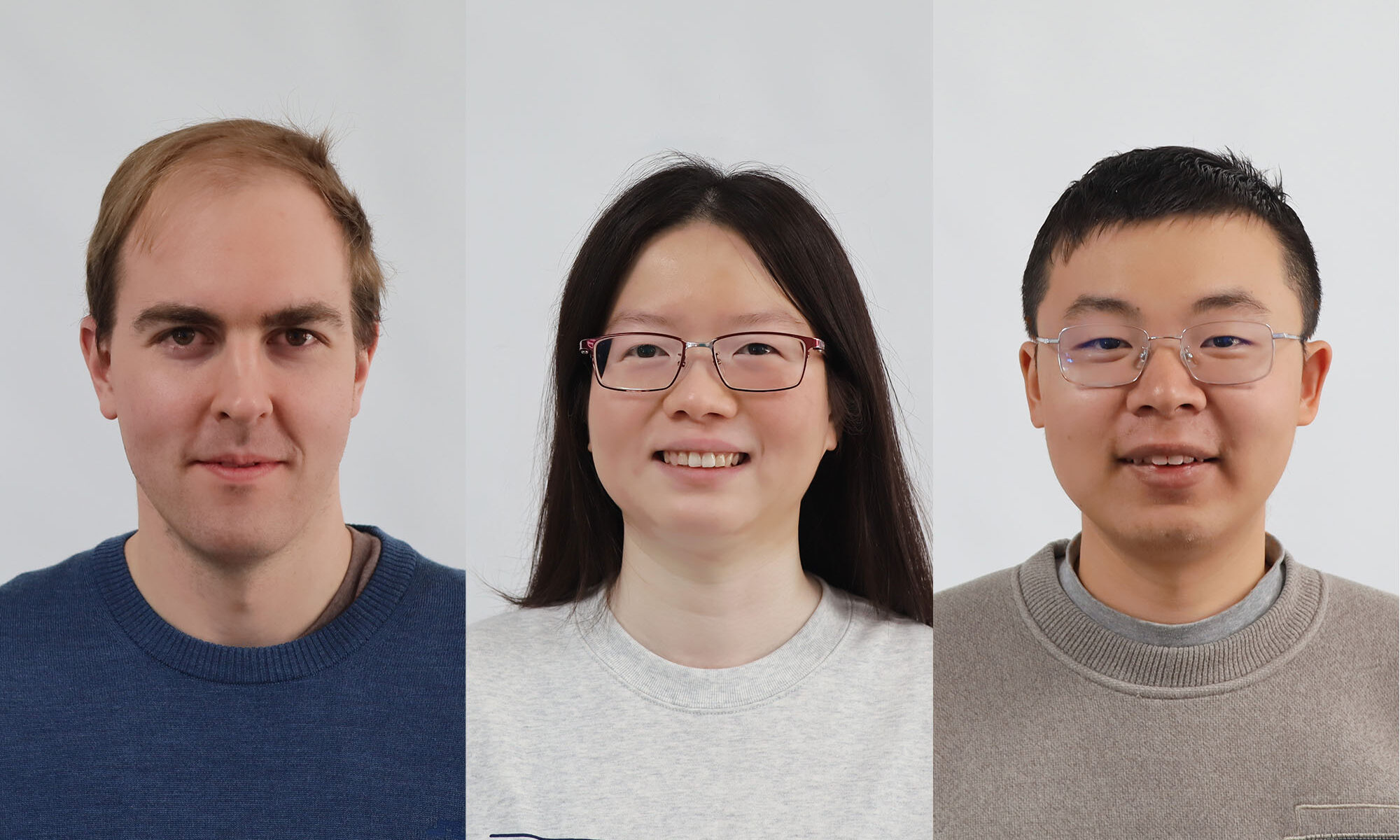On March 3, 2026, Chính T. Hoàng from the Wilfrid Laurier University, Waterloo, Canada gave a survey talk on graph coloring and forbidden induced subgraphs at the Discrete Math Seminar. The title of his talk was “Problems on graph coloring“.
Marek Sokołowski gave a talk on a new parallel algorithm computing single-source shortest paths in directed graphs at the Discrete Math Seminar
On February 24, 2026, Marek Sokołowski from the Max Planck Institute of Informatics gave a talk at the Discrete Math Seminar on a new parallel algorithm computing single-source shortests paths in directed graphs. The title of his talk was “Strongly Polynomial Parallel Work-Depth Tradeoffs for Directed SSSP“.
Seonghun Park (박성훈) gave a talk on formalizing the flag algebra in the lean theorem prover
On February 10, 2026, Seonghun Park (박성훈) from KAIST gave a talk on formalizing the flag algebra introduced by Alexander Razborov in the lean theorem prover. The title of his talk was “Formalizing Flag Algebras in the Lean Theorem Prover“.
Xiaofan Yuan gave a talk on the minimum color-degree condition for having a rainbow path at the Discrete Math Seminar
On February 3, 2026, Xiaofan Yuan from the IBS Extremal Combinatorics and Probability Group gave a talk at the Discrete Math Seminar on the minimum color-degree condition for the existence of a rainbow path between any pair of vertices and its applications. The title of her talk was “Rainbow structures in edge colored graphs“.
Welcome Hyunsung Choi (최현성), a new graduate student of the IBS Discrete Mathematics Group
The IBS Discrete Mathematics Group welcomes Hyunsung Choi (최현성), a new graduate student of the Discrete Mathematics Group from February 1, 2026. He received his B.S. degree from KAIST and entered the Department of Mathematical Sciences at KAIST as a graduate student on September 2025. His advisor is Andreas Holmsen.
Daniel Dadush gave a talk on a strongly polynomial-time algorithm to solve linear programming problems with at most two non-zero entries per each row or each column at the Discrete Math Seminar
On January 27, 2025, Daniel Dadush from CWI gave a talk at the Discrete Math Seminar on a strongly polynomial-time algorithm solve linear programming problems with at most two non-zero entries per each row or each column. The title of his talk was “A Strongly Polynomial Algorithm for Linear Programs with at Most Two Non-Zero Entries per Row or Column“.
Tomáš Masařík gave a talk at the Discrete Math Seminar on finding a balanced separator in an H-minor-free graph in linear time
On January 20, 2026, Tomáš Masařík from the University of Warsaw, Poland, gave a talk on a linear-time algorithm to find a balanced separator in an H-minor-free graph at the Discrete Math Seminar. The title of his talk was “Separator Theorem for Minor-free Graphs in Linear Time“.
Ferdinand Ihringer gave a talk at the Discrete Math Seminar on low-degree Boolean functions and applications of vector space Ramsey numbers
On January 13, 2026, Ferdinand Ihringer from the Southern University of Science and Technology, China gave a talk on low-degree Boolean functions and appications of vector space Ramsey numbers at the Discrete Math Seminar. The title of his talk was “Boolean Functions Analysis in the Grassmann Graph“.
Daniel Mock gave a talk at the Discrete Math Seminar on an algorithmic framework for showing the fixed-parameter tractability of the dominating set problem and its generalizations
On January 6, 2026, Daniel Mock from RWTH Aachen gave a talk on an algorithmic framework for showing the fixed-parameter tractability of the dominating set problem and its generalizations at the Discrete Math Seminar. The title of his talk was “A Simple Algorithm for the Dominating Set Problem and More“.
Welcome Eero Räty, Xiaofan Yuan, and Xin Wei, new members of IBS ECOPRO
The IBS Discrete Mathematics Group welcomes Dr. Eero Räty, Dr. Xiaofan Yuan, and Dr. Xin Wei, new research fellows at the IBS Extremal Combinatorics and Probability Group, starting January 1, 2026.
Dr. Eero Räty received his Ph.D. from the University of Cambridge under the supervision of Prof. Imre Leader. Until recently, he was a postdoctoral researcher at Umeå University, Sweden. He is interested in extremal and probabilistic combinatorics.
Dr. Xiaofan Yuan received her Ph.D. from the Georgia Institute of Technology under the supervision of Prof. Xingxing Yu. She is interested in graph theory and extremal combinatorics. Until recently, she was a postdoctoral researcher at Arizona State University.
Dr. Xin Wei received his Ph.D. from the University of Science and Technology of China under the supervision of Prof. Xiande Zhang. His research interests include combinatorics, coding theory, and graph theory and their interactions.
